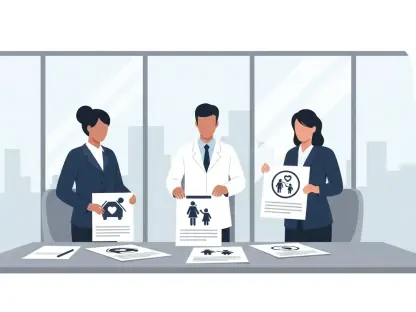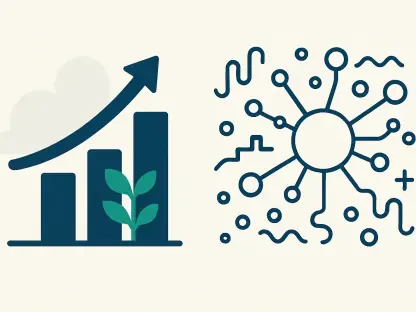Navigating the complexities of health insurance enrollment can be a daunting task, especially during high-stakes periods like Medicare open enrollment, which begins each year on October 15, and with the rise of fraudulent schemes targeting vulnerable populations, the risk of falling victim to scams has never been higher. Scammers often exploit the urgency and confusion surrounding enrollment deadlines, using sophisticated tactics to deceive unsuspecting individuals. The consequences of such fraud can be devastating, ranging from financial loss to compromised personal information. As technology advances, so do the methods employed by these bad actors, making it imperative for consumers to stay informed and vigilant. This article delves into the common tactics used by scammers, the impact on those affected, and practical steps to protect against deception during this critical time.
Unmasking the Tactics of Fraudulent Schemes
Understanding the deceptive strategies employed by scammers is the first step in safeguarding against health insurance fraud. A prevalent method involves unsolicited phone calls, often from numbers that appear to be local or government-related due to caller ID spoofing. These callers may claim to represent Medicare or other official entities, offering enticing deals on insurance plans that seem too good to be true. Frequently, the goal is to extract sensitive information, such as Medicare numbers or banking details, which can then be used to submit fraudulent claims for services or products never provided. The sophistication of these operations, often based overseas, makes it challenging to trace or prosecute the perpetrators. Consumers must remain skeptical of any unexpected contact, especially during peak enrollment periods when scammers ramp up their efforts to capitalize on urgency and confusion.
Another insidious tactic is the misrepresentation of medical discount plans as full-fledged health insurance. Unlike comprehensive coverage, these plans often provide limited benefits or mere discounts on services, leaving enrollees with substantial out-of-pocket costs when medical needs arise. High-profile cases, such as enforcement actions by the Federal Trade Commission against companies misleading tens of thousands of consumers, highlight the scale of this issue. Scammers prey on those desperate for affordable options, using aggressive sales pitches to obscure the fine print. The fallout can be financially crippling, as individuals discover too late that their supposed insurance offers little protection. Awareness of this distinction is crucial, as is the need to scrutinize any plan before committing, ensuring it meets the standards of legitimate health coverage.
The Devastating Impact on Vulnerable Populations
The consequences of health insurance scams extend far beyond financial loss, often striking at the heart of personal security for the most vulnerable. Seniors, in particular, are frequent targets during Medicare open enrollment, as they may be less familiar with digital scams or more trusting of authority figures. When personal information is stolen, it can lead to identity theft, with fraudulent medical bills racking up in their names for treatments never received. The emotional toll of such violations cannot be understated, as victims grapple with the stress of rectifying compromised accounts while facing potential gaps in necessary healthcare. This dual burden of financial and emotional strain underscores the urgency of addressing these scams with robust consumer education and protective measures.
Beyond seniors, other groups seeking affordable coverage through marketplaces or private plans also fall prey to deceptive practices. Families and individuals with limited resources may be lured by promises of low-cost insurance, only to find themselves enrolled in worthless discount plans or entirely fictitious policies. The ripple effect can disrupt access to critical medical care, forcing tough choices between health and financial stability. In some instances, unethical medical practitioners exacerbate the problem by colluding with scammers to bill for unnecessary services, further eroding trust in the healthcare system. Highlighting these real-world impacts serves as a stark reminder of the stakes involved and the need for heightened awareness during enrollment periods.
Practical Steps to Safeguard Against Deception
Arming oneself with knowledge and resources is essential to avoid becoming a victim of health insurance scams. A fundamental step is to verify the legitimacy of any offer or provider before sharing personal details or making payments. Trusted platforms like Healthcare.gov provide a reliable starting point for comparing legitimate plans and understanding coverage options. Additionally, researching companies through credible sources, such as the Better Business Bureau, or searching online for reviews with keywords like “complaint” or “scam,” can reveal red flags. Confirming that a company is licensed by the state insurance commissioner and requesting detailed policy documents rather than relying on verbal assurances can prevent misunderstandings. Staying proactive in this manner ensures that decisions are based on solid information rather than persuasive but empty promises.
Equally important is maintaining a strict policy against sharing sensitive information with unsolicited callers or unverified entities. Genuine government agencies, including Medicare, do not request personal data like Social Security numbers or bank details over the phone. Any such demand should be treated as an immediate warning sign, prompting the individual to hang up and report the interaction to authorities like the Federal Trade Commission. Beyond personal vigilance, spreading awareness among family and friends, especially those who may be more susceptible to scams, can create a broader safety net. Reflecting on past efforts, the collective push by consumer protection agencies to educate the public proved instrumental in reducing scam success rates, setting a precedent for continued diligence and community support in navigating enrollment challenges.









